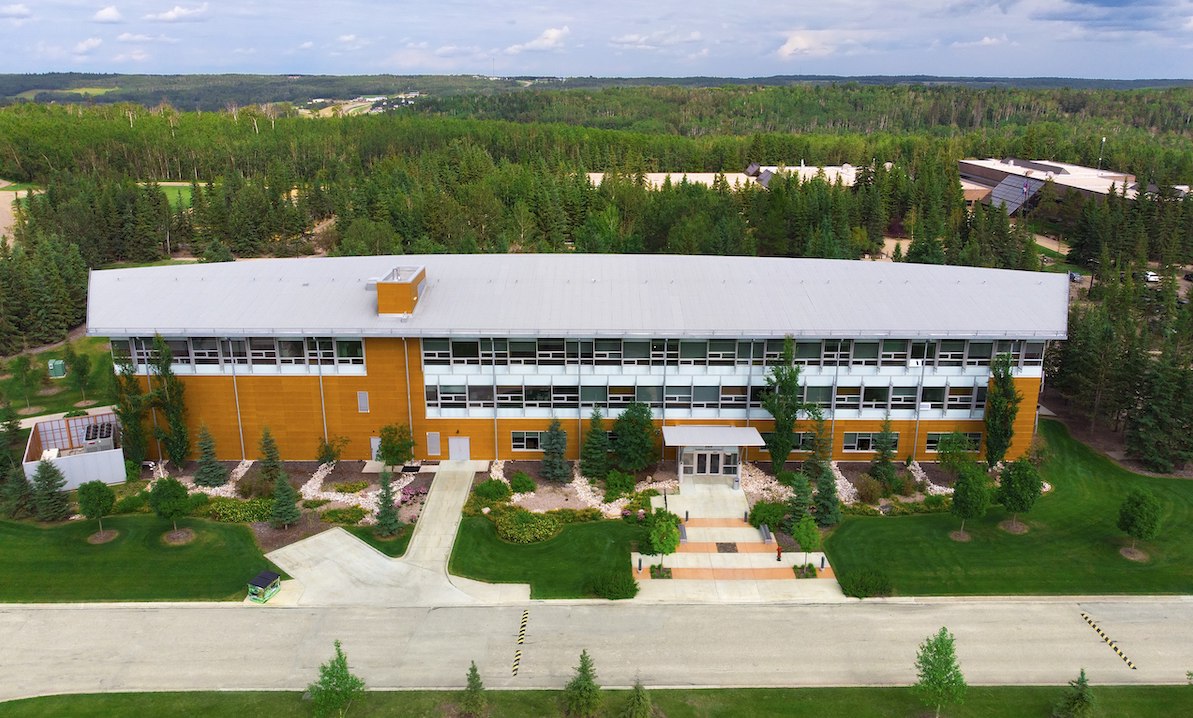Is the Kenney government committed to keeping Athabasca University in the Town of Athabasca as it says?
Are the university’s board and administration ignoring the government’s orders to stay put?
Signals citizens of the community of 3,000 people, 145 kilometres north of Edmonton, are getting are confusing to say the least.
Late last month, Alberta Premier Jason Kenney and his minister of advanced education journeyed north to assure Athabasca residents that all is well and AU will remain a going concern in their community.
In the wake of pandemic work-at-home orders that made it easy for university work to be done far from the Athabasca campus and the well-known wish of some university administrators to be located somewhere else, residents of the town have grown extremely worried.
AU jobs have continued to disappear from town. When a new president was recruited from Australia last year, the university refused to say where Peter Scott would live. Locals took that to mean: Not in Athabasca.
So more than 300 of town residents showed up at the regional multiplex facility on Mar. 24 to quiz the premier, Advanced Education Minister Demetrios Nicolaides, Forestry Minister Nate Horner, and Athabasca-Barrhead-Westlock MLA Glenn van Dijken about what the heck is going on.
Despite financial troubles and efforts over several years to shift university jobs out of town, including covert negotiations with the Edmonton-area city of St. Albert in 2015, the message the United Conservative Party politicians brought was reassuring.
The public distance-education university founded by the Alberta government in 1970 and mostly moved to the town in 1984, would be staying put, the 300 people who packed a local sports facility were told.
“We have … reaffirmed the commitment to supporting local community in fulfilling the recommendations of the Coates Report, which suggested the university work towards expanding the size of its operation in the Town of Athabasca and in northern Alberta generally,” Kenney said according to a transcript of his remarks made by someone at the meeting.
“We have directed the Board of Governors to strengthen its physical presence in the Town of Athabasca by consolidating executive and senior administration offices in Athabasca at the earliest possible opportunity,” he said, according to the transcript.
“We have also directed the board to develop and implement a comprehensive talent development, attraction and retention strategy by June 30th of this year, to maintain and grow a broad range of employees in Athabasca, and to develop and implement a reopening strategy for the Athabasca campus to resume most employees working on site.”
The premier also promised the crowd the government would be appointing more local residents to the university’s board—a commitment he kept on Apr. 5 when Jacqueline Hobal and Roger Morrill were named to the board until 2025.
The crowd in the Athabasca Regional Multiplex burst into applause, the local newspaper reported.
It looked as if the effort of the local advocacy committee struck to keep the institution in Athabasca had paid off—including the fees paid to an Edmonton lobby firm.
But on Apr. 7, Athabasca employees and faculty members were surprised by an email from Scott saying that “the comments and opinions expressed by government officials during the town meeting were not indicative of the reciprocal and consultative relationship that AU has had for many years with the Government of Alberta and the Ministry of Advanced Education.”
“I would like to underline that our operations, mission, and mandate remain unchanged,” Scott’s email stated.
“The university has been clear in every meeting with the Government of Alberta, the town and county councils of Athabasca, and local community members that AU has no plans to leave the community, that we are reaffirming our primary physical location is in Athabasca by ending office leases in Calgary and Edmonton, and that we will continue to give preference to suitably qualified candidates for both place-based and virtual roles who live in, or are interested in moving to, the Athabasca region,” Scott wrote.
“However,” he continued, “to ensure AU’s future success, long-term sustainability, and the success of our learners, the university will continue to prioritize the needs of our more than 43,000 learners worldwide by ensuring we continue to hire and retain the best and the brightest talent.”
Those best and brightest people, it was obvious if unstated, will not be required to live in Athabasca, or even visit there.
This doesn’t sound quite like a drop-dead letter to Kenney and Nicolaides, but it sails pretty close to the wind.
Moreover, while it may not be possible to cart the campus away (although it could be sold off, say, to another institution for a rural nursing program, as one rumour goes), the jobs AU had in the community are still disappearing because no one is required to work on campus. Indeed, staff who live locally have been told they can’t work on campus,
So was Kenney just telling the good people of Athabasca what they wanted to hear on Mar. 24 to shore up his support in the UCP leadership review voting now under way?
Do the AU Board and president have a different understanding of the government’s requirements than the people of Athabasca do?
Or are the AU Board and Scott going rogue and defying the government?
Albertans, especially those who live in Athabasca, deserve clear answers.



